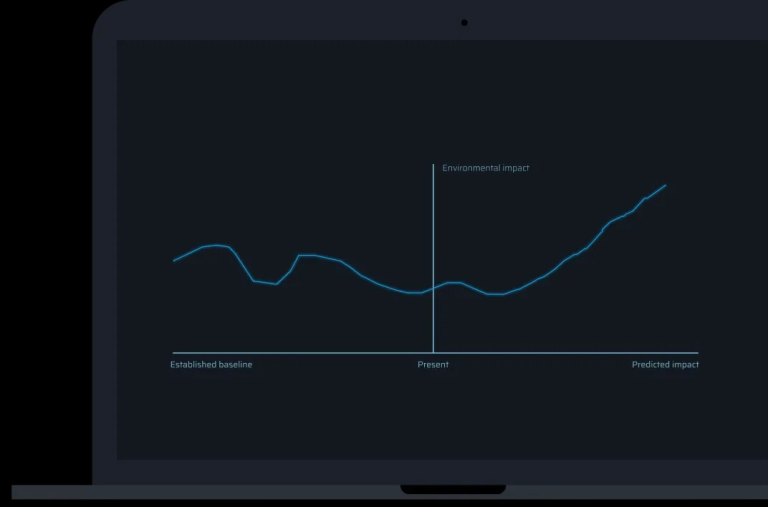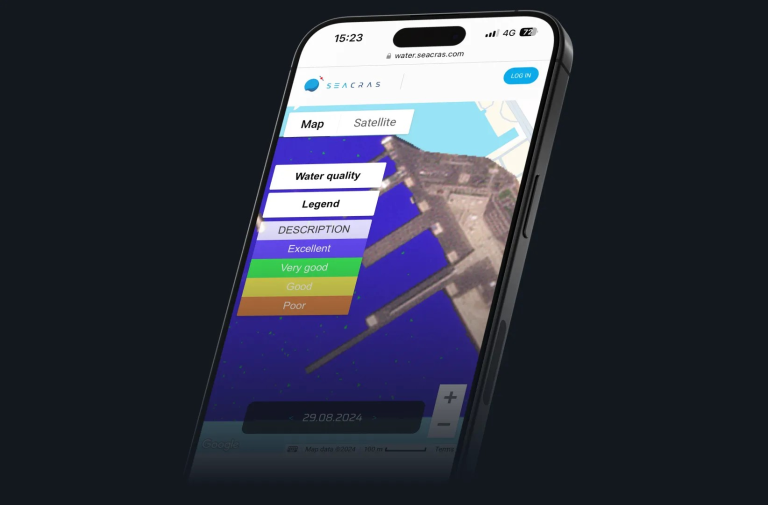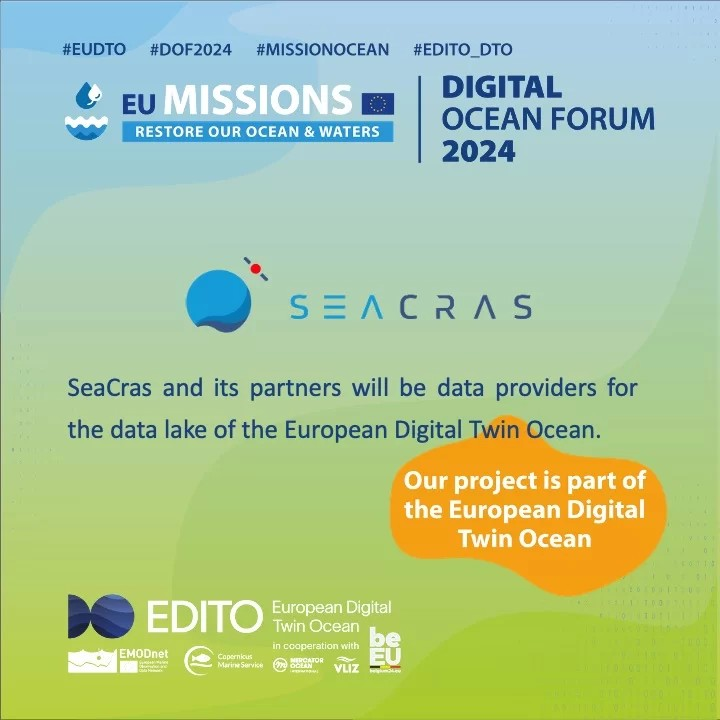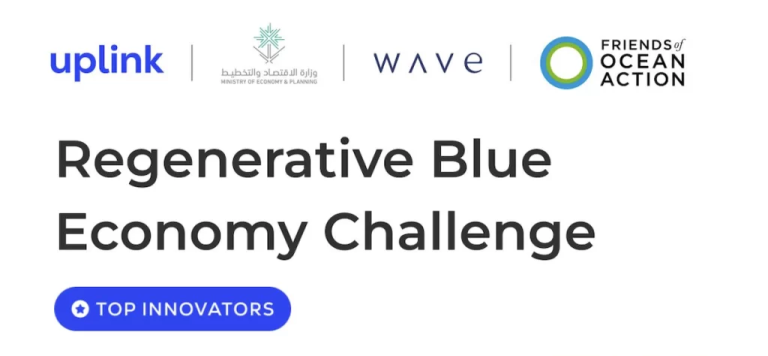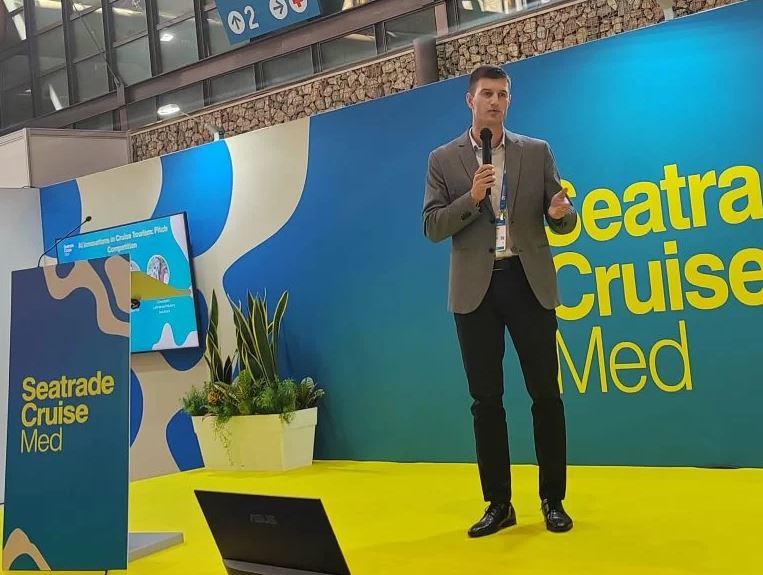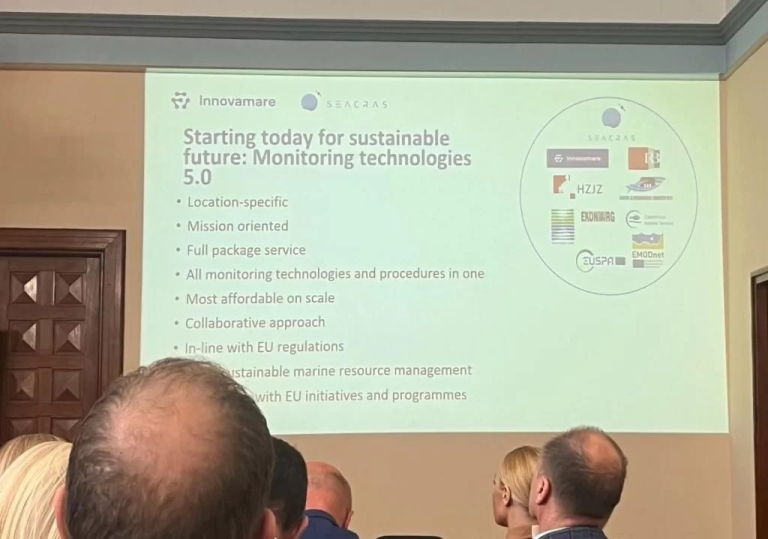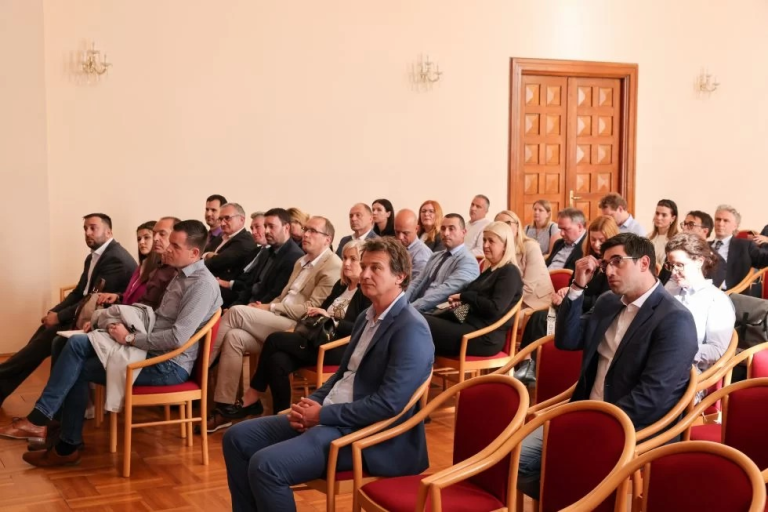SeaCras: Global Innovator in Blue Economy
SeaCras leverages artificial intelligence to analyze high-resolution satellite data, enabling the assessment of marine emissions and ecological vulnerability in micro-locations, tourist destinations, and territorial waters.
The technology allows for continuous monitoring of changes in the marine environment, supporting the analysis of the impact of human activities and climatic factors. This helps minimize greenhouse gas emissions and reduce operational costs for clients. By integrating parameters related to water quality with information on human activities, air quality, and land use, SeaCras provides crucial data for stakeholders in the blue economy to identify risks, threats, but also opportunities. The solution is tailored to address challenges in the cruising industry, coastal tourism, maritime transport, offshore energy, and security and safety sectors.
SeaCras
SeaCras app
Over the past year, SeaCras was invited to present its Coastal Intelligence solution and innovative business practices at several important conferences addressing topics central to its mission. The company earned numerous accolades, establishing itself as one of the top global innovators in blue economy sustainability through its technology and development efforts.
At the EMODnet conference on measuring the effects of tourism on coastal areas, SeaCras CEO Mario Špadina, PhD, highlighted the company’s expertise in sustainable coastal water monitoring using high-resolution satellite technology. SeaCras was recognized for its innovative approach, utilizing EMODnet’s open-source resources and data to reduce research and development costs by calibrating satellite imagery with auxiliary data. Also, SeaCras’s CEO, Mario Špadina, was invited to the EU parliament to draft the future Water KIC structure and its vision.
Earlier in 2024, SeaCras was accepted as a contributing partner to the European Digital Twin of the Ocean (EDITO), the largest digital endeavour for preserving the world’s seas and oceans. SeaCras made its mark as a contributing partner at the Digital Ocean Forum 2024 (DOF2024) in Brussels. This event aimed to promote collaboration and innovation in marine science and technology, with SeaCras’s CEO, Mario Špadina, and CTO, Stipe Lukin, in attendance. A central focus of the forum was the European Digital Twin of the Ocean (EDITO) initiative, a platform designed to co-create and innovate through community resources, science, and technology, enhancing the accessibility and use of marine data across Europe. SeaCras’s work aligns perfectly with the mission of EDITO, as the company is significantly impacting the creation of a more harmonized, accessible, and insightful marine data environment.
SeaCras_EDITO
Uplink_WEF_Top innovators
SeaCras also featured prominently at the Seatrade Cruise Med in Málaga, where sustainability was a key topic of discussion, covering various social and environmental aspects. During the event, SeaCras presented its Coastal Intelligence project, showcasing how AI analysis of high-resolution satellite data can assist the cruise industry with ESG reports on marine resources, demonstrate sustainability efforts using the SeaCras app, and protect entire destinations by constantly monitoring the marine environment for human impacts and climate change effects.
At the UCP2024 conference organized by the EU Agency for the Space Programme (EUSPA), SeaCras was showcased as a success story in the tourism and cultural heritage sessions. Mario Špadina explained how to merge marine sciences with business operations for cruise lines, port operators, and the management of seaborne cultural heritage sites. Notably, SeaCras has also emerged as a leading global innovator, ranking among the top five projects in regenerative blue economy sustainability at UpLink, a World Economic Forum initiative in collaboration with the UN’s Friends of the Ocean, Wave, the Ministry of Economy and Planning of KSA, and ecosystem partners, SeaCras’s Coastal Intelligence project was acknowledged as one of the most comprehensive and innovative solutions for users in the regenerative blue economy.
STCMed
SeaCras
SeaCras_Conference
Participation in these significant events and the accolades received, especially at the World Economic Forum in New York, drive SeaCras to continue developing integrated approaches to monitoring marine conditions and ultimately achieving more effective environmental protection.
SeaCras also provides pollutant detection, biochemical monitoring, and seabed mapping services to port authorities, natural parks, and the coastal tourism and maritime transport sectors. Its technology is ready for immediate implementation, offering the potential to significantly enhance the scope and frequency of data collection, ultimately improving the ability to monitor and manage coastal environments. SeaCras is truly devoted to sustainable blue growth, as seen in its intensive efforts to contribute to the EU and national strategic development planning, masterplans, and action plans. The team is also actively involved in knowledge transfer through lectures, education, and much more.
Don’t miss news, updates, and all the information from the world of cruising on Cruising Journal, featuring photos, videos, and special cruise offers.

